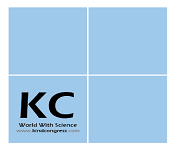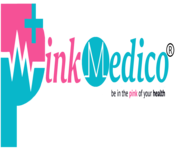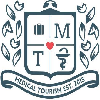Theme: Guidance for the public on the Psychiatry, Mental health and well-being aspects of COVID-19
Psychiatry Mental health 2020
32nd International Conference on Psychiatry and Mentalhealth” which is going to be held on June 22-23, 2020. The theme of the conference is “Guidance for the public on the Psychiatry, Mental health and well-being aspects of COVID-19”. This conference is going to cover the entire field related to Psychiatry and Mentalhealth, its complication and the management and it also cover what is the innovative treatment related to their disorders. We are looking forward to being part of this collaborative gathering of key innovators and thought leaders from across the medical and health spectrum. For more information or for opportunities to attend, speak, or sponsor at this year’s conference
You will be getting an opportunity towards;
· Keynote Presentations
· Oral Presentations
· Poster Presentations
· Workshops
· Symposia
· Young Researchers Forum (YRF)
· Video Presentations
· E-posters
· Exhibitions
· Sponsorship
· Collaborations
Please visit: https://psychiatrymentalhealth.conferenceseries.com
Track1: Psychiatry and Mental Health
Psychiatry is a branch that diagnoses treatment and prevention of mental, emotional and behavioural disorders. Psychiatrists are the experts treating mental illness. Schizophrenia, depression, bipolar disorders, eating disorders etc., are the mental health conditions. Psychiatrists provide psychological treatment, medication, brain stimulation technique such as electroconvulsive therapy. 2.8% of adults nearly affect with mental health disorders
Track2: Child and Adolescent psychiatry
Child and Adolescent psychiatry is a branch of psychiatry that focusses on diagnosis, treatment and prevention of mental disorders in children and adults. Child psychiatry is otherwise called Paediatric psychiatry tremendous developments have been seen in the past two decades child and adolescent psychiatry is a challenging speciality. 75% of adult mental health problems have been started before the age of 18. ADHD, Autism is the neurodevelopmental disorders arising in childhood disruptive behaviour, feeding and toileting difficulties, depression are the emotional Disorders.
Track3: Mental illness and Health Care
Mental illness is called mental health disorders it affects persons thinking, mood. One in five adults experience mental health disorders. Some disorders like autism or conduct disorder have significant implications for the child's development and modification in grown-up life. It examines the bio psychosocial factor that impacts the improvement and course of mental issue and treatment reaction to different intercessions.
Track4: Midwifery and Women’s Health
Midwifery is the science that deals with pregnancy, child birth and the care of new born Midwives are group of people who attend birth in and out of hospital they also provide well women care to clients between ages of 13 and 65. If the women risk status increases during pregnancy midwives work in close cooperation with physicians to develop and provide safest care plan. Women have unique health issues such as pregnancy, menopause, breast cancer, cervical cancer, bone density etc.
Track5: Mental health and Psychiatric Nursing
Mental health refers to our cognitive, behavioral, and emotional wellbeing. Biological factors like genes or brain chemistry, life experiences such as trauma or abuse, family history of mental health problems are the factors which contribute to mental health problems. People with these mental health problems can get better and recover easily. Psychiatric Nursing is the position of a nurse appointed who was specialised in mental health to help the patients overcome their psychiatric disorders and the stigma associated with it living their best lives. Psychiatric Nurses will work in Hospitals, Psychiatric Hospitals, Home healthcare organisations, prisons, Outpatient mentalhealth organisations and schools that serve people with emotional and mental health issues Nursing and mental health
Track6: Neuroscience and Neuropsychiatry
Neuroscience is the study of the brain and nervous system in both humans and non-human animals, and in both health and disease. The subject neuroscience has grown rapidly and now covers multiple areas including novel technologies and research into many brain functions and disorders, as well as applications as diverse as education, artificial intelligence and the law. Invasive Monitoring, Neuropsychological Testing, Eye-Tracking, Event-Related-Potentials, Kinematics, structural MRI, functional MRI, Tractography, Source EEG are some of the techniques in Neuroscience and Neuropsychiatry. Clinical Neuropsychiatry is the area of overlap between neurology and psychiatry and includes neurodegeneration, neuroinflammation, epilepsy, brain injury and functional neurological disorders. It is an exciting and developing area of study.
Track7: Addiction and its Disorders
Addiction is a complex condition, a brain disease that is manifested by compulsive substance use despite harmful consequence. It is difficult to control the use of the substance by a person with substance use disorder. Opioid Use Disorder, Gambling Disorder, Internet Gaming Disorder, Caffeine Intoxication and Withdrawal are some of the addiction disorders. Addictions are diagnosed under the category substance use and addiction disorders. Substance use disorders have a range of psychological, physical, and social effects that can drastically reduce people's quality of living
Track8: Schizophrenia and Nursing Care
Schizophrenia refers to a group of severe, disabling psychiatric disorders marked by withdrawal from reality, illogical thinking, possible delusions and hallucinations, and emotional, behavioral, or intellectual disturbance. It affects 1.1% of the population above age 18, which is estimated to be 51 million people worldwide. Schizophrenia is linked to many factors the exact cause is unknown. Nursing cares provide 24hr support. Nursing care usually refers to procedures or medications that area unit only or primarily geared toward providing comfort to a patient or assuaging that person’s pain, symptoms or distress, and includes the offer of oral nutrition and hydration.
Track9: Stress, Anxiety and Depression
Stress is that the response to a threat in an exceedingly state of affairs anxiety is that the reaction to fret. Chronic stress will have an effect on your health, inflicting symptoms from headaches, high vital sign, and pain to heart palpitations, skin rashes, and loss of sleep. Chronic anxiety will be weakening and cause irrational thoughts and fears that interfere together with your lifestyle. Depression and anxiety will occur at identical time. In fact, it’s been calculable that forty five % of individuals with one mental state condition meet the standards for 2 or a lot of disorders
Track10: Sleep Disorder and Medicine
Sleep is a complex biological process. While you are sleeping, you are unconscious, but your brain and body functions are still active. Insomnia, Sleep apnea, Restless leg syndrome, Hypersomnia, Circadian rhythm disorders, Parasomnia are some of the major sleep disorders. Mental illness line Depression and Anxiety, Nerve disorders can cause sleep disorders. Anti-Parkinsonian drugs, Benzodiazepines, Non-benzodiazepine hypnotics, Melatonin receptor stimulator, Opiates, Anticonvulsants, Anti-narcoleptics, Orexin receptor antagonists are some of the drugs used in the treatment of sleep disorders
Track11: Psychosis, Medication and Early Intervention
Psychosis is a mental health problem that causes individuals to interpret things around them. Hallucinations and Delusion are the symptoms of psychosis the combination of these two can cause severe distress and change in behaviour. Antipsychotics are given to reduce the symptoms of psychosis. These medications have serious side effects combination of these medicines with other therapies can help people to improve the quality of life
Track12: Research, Education and Case studies on Mental Health
According to world Health Organization (WHO), there are in excess of 450 million people with mental, neurological, or social issues far and wide (WHO, 2005a). Mental health issues are evaluated to speak to 13% of the overall weight of infection, essentially from unipolar and bipolar confusion, alcohol and substance-use disarranges schizophrenia, and dementia. Regardless, in various countries, passionate health is agreed a low need; for example, a 2005 WHO examination found that around 33% of low-pay countries who itemized a mental prosperity spending plan spent under 1% of their total prosperity spending plan on enthusiastic wellbeing.
Track13: Management and treatment of Mental Health issues
Many individuals determined to have psychological sickness accomplish quality and recuperation through taking an interest in individual or gathering treatment. There are a wide range of treatment alternatives accessible. There is no treatment that works for everybody – people can picked the treatment, or combination of medications, that works best. Treatments include psychotherapy, medication, hospitalisation, case management etc.
Psychiatry & Mental Health 2019 Report
Conference Series organized 30th International Conference on Psychiatry & Mental Health in Tokyo, Japan with a focus on “New Developments in Psychiatry & Mental health- Empower, Engage, Educate” where eminent keynote speakers from various reputed institutions made their resplendent presence and addressed the gathering.
Psychiatry & Mental Health 2019 witnessed an amalgamation of peerless speakers who enlightened the crowd with their knowledge and confabulated on various new-fangled topics related to the field of Psychiatry & Mental Health.
Lynnette Lyzwinski acted as moderator for the conference and the introduction was initiated by her followed by the Keynote sessions, plenary speeches, Young Researchers Forum, workshops and poster presentations.
Keynote Sessions by:
- Atique Ahmed, Fienberg School of Medicine- North-western University, USA
- Nigila Ravichandran, Institute of Mental Health, Singapore
Workshop by:
Frank Van De Goot, Symbiant Pathology Expert Centre, Netherlands conducted a workshop on “Air Toxic Syndrome myth or reality” on August 14, 2019 in connection with this conference as a curtain raiser to this topic.
This conference was a path breaking opportunity for Students too, which were given a chance to exhibit their paramount research work through Poster Presentation, young researcher’s forum and discuss the same with the exalted scientists.
Conference Series offers its heartfelt appreciation to all the Organizing Committee Members, Moderator, Chairs and Co-Chairs, Speakers, Students, Media Partners and Editorial Board Members of Journal of Neurology and Neurological disorders, Journal of Psychology & Psychotherapy, Journal of Psychiatry who supported the conference in every aspect for the awe-inspiring exhibition at the venue.
We once again thank you all for the enormous exquisite response. With the unique feedback from the conference, Conference Series would like to announce the commencement of the “32nd International Conference on Psychiatry & Mental Health June 22-23, 2020 Brisbane, Australia”.
Book your dates for the upcoming event and I look forward to meet you in Brisbane!!
Al Baraha Global Psychiatry and Psychology market contributes to $34.5 billion which includes major countries such as US (74%), Europe (64%), japan (8.3%), and UAE (7.8%).
Market Analysis for Abuse and Addiction Treatment
The global substance abuse and addiction treatment market reached $3.1 billion in 2016 and should reach nearly $4.4 billion in 2021, at a compound annual growth rate (CAGR) of 7.0%.
Market Analysis for Pediatric Medicines
The global market for pediatric medicines reached $80.7 billion in 2013 and should reach $83.6 billion in 2014. This market is expected to reach about $100.7 billion by 2019, registering a compound annual growth rate (CAGR) of 3.8% from 2014 to 2019.
Market Analysis of Anti-Psychotic Drugs
The global market for antipsychotic drugs should grow from $13.2 billion in 2018 to reach $14.5 billion by 2023 at a compound annual growth rate (CAGR) of 1.9% for the period of 2018-2023.
Market Analysis for CNS Biomarker Market
The global CNS biomarker market is projected to reach $5.1 billion by 2020 from $3.1 billion in 2015, at a compound annual growth rate (CAGR) of 10.4%.
Fund Allotment to Psychiatry Research
NIHR- National Institute for Health Research- $1.05 bi
HBP- Human Brain Project - $ 1.3bi
BRI- Brain Research Initiative -$ 0.1 bi
Mental illness’ and ‘Mental disorder’ are the terms used to describe a spectrum of mental health and behavioral disorders in Australia. National Survey of Mental Health and Wellbeing was started in 1990 in Australia. The role of this survey is to measure the number of population and the amount of disability with mental health disorders and mental health services used by the people. The importance of fine mental state and its impact on Australians have long been recognized by the Australian government and every one state and territory governments. Over the last three decades, these governments have worked along, via the National Mental State Strategy, to develop mental state programs and services to raised address the mental state needs of Australians.
In 2015-16, Australian Institute of Health and Welfare was estimated that around $9.0 billion or $373 per person was spent on mental health-related services. Out of 9.0 billion USD $5.4 billion (59.8%) was funded by state and territory governments, $3.1 billion (35%) were funded by the Australian government and $466 million (5.2%) was funded by private health insurance funds.
Funding of Projects
Brain Research Initiative
Brain Research through Advancing Innovative technology is a research effort launched by the Obama Administration to map the human brain working. In FY 2014, a $100 million fund was issued in name of the National Institutes of Health.
National Institute for Health Research
In 2012/13, NIHR had a total research cost of £958.9m, research program’s- £208.9m and on infrastructure-£618.9m. The Faculty members of NIHR including senior investigators and fellowships received £100m.
Human Brain Project
The Human Brain Project is the one of the longest running project; the project cost is estimated at 1.19 billion euros and planned to last ten years (2013-2023).
PROJECTIONS: GROWTH IN NEXT 5 TO 10 years
Psychiatrists - Demand for Psychiatrists are projected to increase from ∼18,180 to 21,440 by 2025.
The Human Brain Project- The main goal of the HBP is to deliver a collaboratively built first draft "scaffold" model and simulation of the human brain by 2023.
Healthy People 2020- It is a statement of national health objectives designed to identify the most significant preventable threats to health and to establish national goals to reduce these Psychiatry problems.
WPA Member Societies and Sections plan to increase significantly the number of Psychiatrists in the near future, and to upgrade the pattern of distribution of the journal. In addition to the original English edition, a Chinese edition of the journal is already being produced. Contacts are ongoing for the production of Spanish, a Portuguese and a Japanese edition.
The journal is also produced in an electronic version, which is sent by email to the Presidents of all WPA Member Societies and the Chairpersons of all WPA Sections. This version is already included in the website of the WPA and of several of its Member Societies and Sections.
Global Burden of Disease: A collaborative Project (2005 to 2030)
WHO launched a number of global public health projects, including the Public Health and Global Initiative on Psychiatry and whose purpose is to increase professional and public awareness of the occurrence, extent and costs of disorders and to emphasize the need to provide Psychiatric & psychological care at all levels including primary healthcare.
Human Connectome
The NIH Human Connectome Project is an ambitious effort to map the neural pathways that underlie human brain function. The objective of Project is to acquire and share data about the structural and functional connectivity of the human brain.
ROOTS: Investigating the origins of adolescent psychopathology
The project will not restrict itself to the study of depression but will encompass many aspects of teenage mental health throughout the demanding adolescent period. The aim is to determine the relative contributions that specific genetic, physiological, psychological and social variables make to the overall risk for psychopathology during adolescence. Teenagers are recruited into the study at age 14 and will be followed through the adolescent period until they reach 17-18.
Conference Highlights
- Psychiatry and Mental Health
- Sleep Disorder and Medicine
- Stress, Anxiety and Depression
- Addiction and its Disorders
- Schizophrenia and Nursing Care
- Neuroscience and Neuropsychiatry
- Mental Health and Psychiatric Nursing
- Research, Education and Case studies on Mental health
- Midwifery and Women’s Health
- Mental illness and Health Care
- Child and Adolescent psychiatry
- Psychosis, Medication and Early Intervention
- Management and treatment of Mental Health issues
To share your views and research, please click here to register for the Conference.
To Collaborate Scientific Professionals around the World
| Conference Date | June 22-23 2020 | ||
| Sponsors & Exhibitors |
|
||
| Speaker Opportunity Closed | |||
| Poster Opportunity Closed | Click Here to View | ||
Useful Links
Special Issues
All accepted abstracts will be published in respective Our International Journals.
Abstracts will be provided with Digital Object Identifier by

















